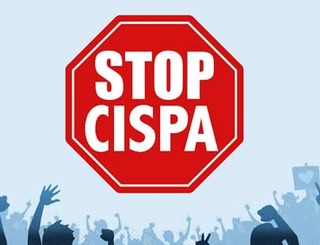Lawmakers Defend Controversial CISPA Bill
Lawmakers have defended the return of the controversial Cyber Intelligence Sharing and Protection Act (CISPA) bill, arguing that the legislation is necessary in order to protect the United States against cyberattacks from regions such as China and Iran.
In a conference call with reporters, Representative Mike Rogers, who is chairman of the House Permanent Select Committee on Intelligence, emphasized that his bill protects civil liberties while preserving the open and free Internet. "[CISPA] protects privacy by empowering Web services and providers to protect their services," the Michigan Republican said. He added that the bills' supporters are working to resolve issues with the White House, which has criticized the bill in its current form.
With CISPA, the U.S. government and private companies will be permitted to exchange information regarding cyberthreats. For example, should the Homeland Security become aware of a scheduled hack of Facebook, it would subsequently notify the social network. That said, the bill would also allow Facebook to notify the feds if it detected hackers on its network.
CISPA would "empower American businesses to share anonymous cyber threat information with others in the private sector and enable the private sector to share information with the government on a purely voluntary basis."
The general consensus is that CISPA would allow technology firms such as Facebook and Google to expose personal information about their users. "What constitutes 'good faith' is unclear on the face of CISPA, given its overall vagueness—which is likely to make difficult any attempt at litigating against companies," the Electronic Frontier Foundation said in 2012.
The non-profit advocacy group cited that if a firm doesn't have strong security measures in place and is consequently hacked with all of its users' data being stolen, it could potentially avoid any issues with the law by providing details about the hack to the feds.
CISPA simply "empowers the private sector to protect itself in a better way," representative C.A. Dutch Ruppersberger said. "The threat is real," he added, referring to recent hacks of the "New York Times" and "The Wall Street Journal." Rogers stressed that members of Congress are surprised to hear about such threats during classified briefings, which "motivates people to do the right thing."
Get Tom's Hardware's best news and in-depth reviews, straight to your inbox.
The United States is "really under siege here from countries like Iran, who are trying to bring down our financial services industry," in addition to China, which has carried out "unprecedented [and] epic" cyber attacks.
CISPA had passed the House last year, but failed to make it through the Senate. The White House, meanwhile, threatened to veto it. Ruppersberger said that the administration's veto threat was made at an advanced stage of the bill, which caught him off guard. Alongside Rogers, he has been discussing a revised CISPA bill with the White House. Rogers anticipates "meaningful negotiations" with the administration.
U.S. President Barack Obama recently signed a cybersecurity executive order that allows firms to share information, while allowing federal agencies to notify private companies about cyberthreats, but it doesn't allow private companies to notify the government in order to receive protection from possible repercussions.

Zak Islam is a freelance writer focusing on security, networking, and general computing. His work also appears at Digital Trends and Tom's Guide.
-
itchyisvegeta Here we go again. Unless passing a law nullifies or repeals a previous law, passing laws empower the government, not the private sector. Too many fascists running this country.Reply -
Soul_keeper Problem is these lawmakers spend 24/7 working on ways to screw us.Reply
While the rest of us work to pay their salaries.
They are likely hoping we get tired or don't have the energy to keep fighting them.
We must be vigilant. More laws are not a solution, nomatter how much they try to scare us into thinking we need them. -
Kami3k Maybe NYT and WSJ should listen to their IT department more.Reply
Problem solved, no bill needed. -
Kami3k itchyisvegetaHere we go again. Unless passing a law nullifies or repeals a previous law, passing laws empower the government, not the private sector. Too many fascists running this country.Reply
This actually would help the private sector, as in it will be able to more easily sell your info. AKA make money, which is the goal of the private sector.
And I suggest you look up the word fascist. -
KelvinTy The "What Kind of Information" is the key point...Reply
Like I care if you "share" something like, "We are currently under attack!" and "They are trying to access our blablabla (e.g. user data) database!"...
The problem with the bill is, it doesn't specify, to what extend... All I know, they gov organization could have my address, my social security number, my email address, favourite website, and maybe, even my credit card number... These info can be really harmful to someone... -
dark_knight33 itchyisvegetaToo many fascists running this country.Reply
You have no idea what real fascism is, just like the idiots that think socialism = communism. Instead of name calling, why don't you try pointing out the fact that the real problem is politicians that don't understand technology trying to craft tech law? Most of our politicians don't study tech, and don't really have an idea of the repercussions these laws would create. They constantly take knee jerk reactions on vauge threats from a foreign country that really isn't interested in attacking "our cyber-infrastructure". They make it sound so dramatic, when it's really just private companies skimping on their IT budget. -
C12Friedman I have to agree with the bill here. Until someone can invent the telephone which would magically allow a website or corporation to tell the feds or (heaven forbid) the feds share info with someone else... we're all just going to have to sit around the campfire and read tea leaves for information - when will they invent that phone thing?Reply -
After spending any time on Capital hill or in a court of Law, ALL of these politicians know exactly what it means to use vague language in a bill like they have done here. Hint: it's a blank goddamn check to interpret it however they want and do whatever they want.Reply
This is no accident. They aren't being naive. They aren't unintentionally screwing us. They know _exactly_ what they are doing. -
Marcus52 Kami3kThis actually would help the private sector, as in it will be able to more easily sell your info. AKA make money, which is the goal of the private sector.And I suggest you look up the word fascist.Reply
You definition of the phrase "private sector" is a bit narrow here. Individuals are part of the private sector. And, the bill isn't designed to allow companies to make more money in a fair and equitable way, it is designed to be an end-run around our rights, further enlisting businesses to violate them on behalf of the government , and in turn said government gives them protection against legal procedures when they get sloppy about their security.
This has already gone far beyond what anyone should put up with. If law enforcement needs to gather data, they should do it as they had to in the past, with oversight from another, separate organization (the judicial system). "Checks and Balances" is disappearing from our legal system, and that will only mean less freedom, not more safety. Those truly concerned with our safety are perfectly willing to protect it within the bounds of the Constitution.
Notice that the Republican/conservative will tell you he's all about less government sticking its nose in your business and taking your money away with higher taxes, but they are solidly behind bills like this. Our so-called 2-party system has devolved into trying to select the party that will least take away the rights you hold most dear - and even that is an illusion because almost all politicians are about taking the rights of the individual away and putting the power into their pockets.
Thank you EFF for being one of the solid bastions against governmental and media wool being pulled over our eyes.
